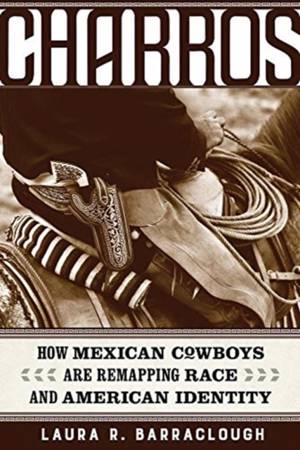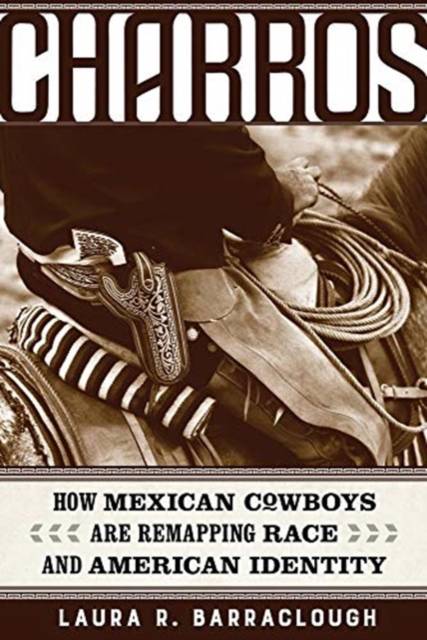
Door een staking bij bpost kan je online bestelling op dit moment iets langer onderweg zijn dan voorzien. Dringend iets nodig? Onze winkels ontvangen jou met open armen!
- Afhalen na 1 uur in een winkel met voorraad
- Gratis thuislevering in België vanaf € 30
- Ruim aanbod met 7 miljoen producten
Door een staking bij bpost kan je online bestelling op dit moment iets langer onderweg zijn dan voorzien. Dringend iets nodig? Onze winkels ontvangen jou met open armen!
- Afhalen na 1 uur in een winkel met voorraad
- Gratis thuislevering in België vanaf € 30
- Ruim aanbod met 7 miljoen producten
Zoeken
€ 50,95
+ 101 punten
Uitvoering
Omschrijving
In the American imagination, no figure is more central to national identity and the nation's origin story than the cowboy. Yet the Americans and Europeans who settled the U.S. West learned virtually everything they knew about ranching from the indigenous and Mexican horsemen who already inhabited the region. The charro--a skilled, elite, and landowning horseman--was an especially powerful symbol of Mexican masculinity and nationalism. After the 1930s, Mexican Americans in cities across the U.S. West embraced the figure as a way to challenge their segregation, exploitation, and marginalization from core narratives of American identity. In this definitive history, Laura R. Barraclough shows how Mexican Americans have used the charro in the service of civil rights, cultural citizenship, and place-making. Focusing on a range of U.S. cities, Charros traces the evolution of the "original cowboy" through mixed triumphs and hostile backlashes, revealing him to be a crucial agent in the production of U.S., Mexican, and border cultures, as well as a guiding force for Mexican American identity and social movements.
Specificaties
Betrokkenen
- Auteur(s):
- Uitgeverij:
Inhoud
- Aantal bladzijden:
- 304
- Taal:
- Engels
- Reeks:
- Reeksnummer:
- nr. 54
Eigenschappen
- Productcode (EAN):
- 9780520289123
- Verschijningsdatum:
- 4/06/2019
- Uitvoering:
- Paperback
- Formaat:
- Trade paperback (VS)
- Afmetingen:
- 152 mm x 226 mm
- Gewicht:
- 408 g

Alleen bij Standaard Boekhandel
+ 101 punten op je klantenkaart van Standaard Boekhandel
Beoordelingen
We publiceren alleen reviews die voldoen aan de voorwaarden voor reviews. Bekijk onze voorwaarden voor reviews.











